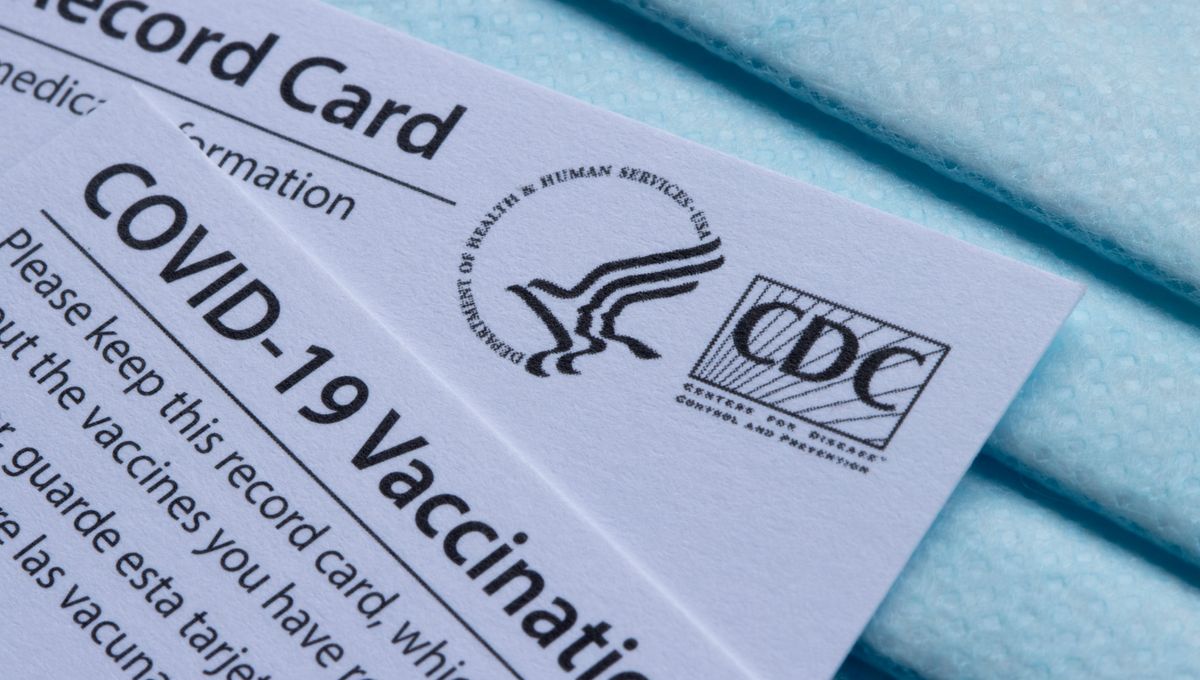
There’s a new COVID-19 variant on the block, called NB.1.8.1. It’s being monitored by the World Health Organization (WHO) after cropping up in a number of countries, and now the USA has joined that list. But at the same time, there are some big changes afoot, with some of the historical recommendations around booster shots being rolled back by the Trump administration.
“By late April 2025, [NB.1.8.1] comprised roughly 10.7 percent of all submitted sequences – up from just 2.5 percent four weeks prior,” writes virologist and infectious disease expert Lara Herrero in a piece for The Conversation. It was the dominant variant in Hong Kong and China at the end of April, having first been detected back in January, and is now reaching more distant corners of the globe.
There have been concerns that a new variant might be on the way, with a new wave of infections in tow, after China saw an increase in hospitalizations for respiratory symptoms this spring. While there’s currently no evidence that NB.1.8.1 causes more severe disease than its predecessors, there are some clues to suggest it could spread more easily.
Data from a preprint, which is yet to undergo peer review, point to NB.1.8.1 being better at evading prior immunity than some previous variants. “Results showed the neutralising response of antibodies was around 1.5 times lower to NB.1.8.1 compared to another recent variant, LP.8.1.1,” Herrero explained. “This means it’s possible a person infected with NB.1.8.1 may be more likely to pass the virus on to someone else, compared to earlier variants.”
There is some good news. NB.1.8.1 is yet another subvariant in the Omicron lineage and counts JN.1 among the variants in its family tree. The latest updates to most of the COVID vaccines were targeted at JN.1, and it’s likely that these will still offer good protection against currently circulating strains.
NB.1.8.1 has now been detected in multiple locations across the US, although a Centers for Disease Control and Prevention (CDC) spokesperson reported that case numbers were too few for the variant to yet be included on the agency’s monitoring dashboard, reports CBS News.
Up to now, the CDC’s COVID vaccine recommendations have been among the simplest in the world: if you’re over the age of 6 months, you should get an up-to-date vaccine. But that is seemingly about to change.
In a post on social platform X on Tuesday, May 27, Health and Human Services Secretary Robert F. Kennedy Jr announced that “healthy children and healthy pregnant women” would no longer be advised to receive a COVID vaccine. The post labeled the move “common sense and good science,” and was accompanied by a recorded video message from Kennedy alongside Food and Drug Administration (FDA) Commissioner Marty Makary and National Institutes of Health (NIH) Director Jay Bhattacharya.
As The Hill’s Nathaniel Weixel points out, this casting is somewhat unusual as the NIH does not typically play a role in vaccine regulation. It’s the FDA’s job to approve new vaccines, and then the CDC’s to set the recommendations for eligibility. Weixel suggests that since the CDC is currently without an acting director, Kennedy appears to have made this change unilaterally.
Just a few weeks ago, in another major statement about vaccines, Kennedy made a controversial pledge to require all new vaccines to be tested in placebo-controlled trials before licensing. The news was met with consternation from many scientists, who were vocal about how such a blanket requirement could threaten research ethics and vaccine access.
Among many celebrating the move, the new announcement has also been met with a similarly baffled reaction from some quarters.
“There’s no new data or information, just them flying by the seat of their pants,” Michael Osterholm, director of the University of Minnesota’s Center for Infectious Disease Research and Policy, and a member of the steering committee of the new Vaccine Integrity Project, told AP News.
It’s worth mentioning that other countries long ago updated their own policies, limiting COVID booster vaccine access for some groups. Notably, in the UK, only those aged 75 or older, those living in adult care facilities, and those with compromised immune systems are eligible for a vaccine via the National Health Service. Others may be able to pay to get a vaccine, but this is not always available and can be costly.
Kennedy’s announcement has raised questions about whether US health insurers will still be obliged to cover COVID vaccination and whether the move could be a first step towards limiting access to other vaccines, something Osterholm and the Vaccine Integrity Project are particularly wary of.
There’s also some confusion around what constitutes a “healthy pregnant woman”, as pregnancy itself has been considered a risk factor for more serious complications from COVID-19.
“The reason we give vaccines to healthy people is to keep them safe,” commented Dr Georges Benjamin, executive director of the American Public Health Association, to AP News.
With all the evidence around the damage this virus can do to previously healthy people – including children – and new variants proving that it hasn’t gone away, it’s not hard to see why some are questioning the logic of limiting access to the vaccines that have already protected so many people.
Source Link: New COVID Variant NB.1.8.1 Detected Amid Big Changes Coming To Vaccines In US